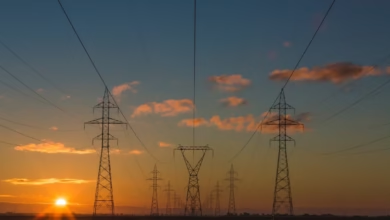Harnessing the Power of Distributed Energy: How Rooftop Solar and Innovations are Transforming the Energy Landscape

As the world grapples with the pressing challenges posed by climate change and the urgent need for sustainable solutions, the shift towards distributed energy generation is gaining momentum. This paradigm shift, characterized by decentralized energy systems such as rooftop solar panels, is not only reshaping how we produce and consume energy but also redefining energy markets and policy frameworks. By harnessing renewable energy sources—like solar power, wind energy, and bioenergy—communities are increasingly moving away from conventional fossil fuels and nuclear energy, thereby contributing to a cleaner, greener future.
In this article, we will explore the concept of distributed energy and its critical role in the energy transition. We will delve into the impact of rooftop solar panels on energy efficiency and market dynamics, while also examining the latest innovations in energy storage and smart grids that promise to revolutionize the way we manage our energy systems. As we navigate through global energy trends and the evolving landscape of energy economics, it becomes clear that investing in distributed energy not only enhances energy security but also paves the way for a resilient and sustainable energy future. Join us as we uncover the potential of decentralized energy solutions in combating climate change and fostering a new era of energy innovations.
- 1. Understanding Distributed Energy: The Role of Renewable Energy in the Energy Transition
- 2. The Impact of Rooftop Solar Panels on Energy Markets and Energy Efficiency
- 3. Innovations in Energy Storage and Smart Grids: Paving the Way for a Sustainable Future
1. Understanding Distributed Energy: The Role of Renewable Energy in the Energy Transition
As the world shifts towards a more sustainable future, understanding distributed energy is crucial in the broader context of renewable energy and the energy transition. Distributed energy refers to decentralized energy generation systems, such as rooftop solar panels and small wind turbines, that enable consumers to produce their own energy rather than relying solely on traditional fossil fuels or centralized power plants. This shift not only promotes energy efficiency but also enhances energy security by diversifying energy sources.
Renewable energy plays a pivotal role in this transition. Technologies like solar power, wind energy, hydropower, and bioenergy are at the forefront of reducing reliance on fossil fuels and nuclear energy. By harnessing these green energy sources, countries can lower their carbon footprints and mitigate the impacts of climate change. Moreover, with innovations in energy storage and smart grids, the integration of renewable energy into existing energy markets becomes more feasible, allowing for better energy management and distribution.
The global energy trends indicate a growing investment in distributed energy systems. Energy policy is increasingly favoring decentralized models that support energy exports and imports while promoting local energy production. This shift not only creates opportunities for energy R&D but also encourages advancements in thermal energy and hydrogen energy technologies. The emphasis on energy innovations is critical for developing effective carbon capture solutions and enhancing the overall efficiency of energy transportation systems.
Furthermore, the rise of electric vehicles aligns with the distributed energy movement, as they can leverage renewable energy sources, contributing to cleaner urban environments. By prioritizing distributed energy solutions, we can create a resilient energy economy that embraces sustainability, drives energy investments, and secures a stable energy future in the face of evolving global energy demands.
In conclusion, understanding distributed energy within the context of renewable energy is essential for navigating the complexities of the energy transition. By prioritizing innovations and policies that support decentralized energy generation, we can foster a more sustainable and secure energy landscape for generations to come.
2. The Impact of Rooftop Solar Panels on Energy Markets and Energy Efficiency
Rooftop solar panels are revolutionizing energy markets and enhancing energy efficiency in unprecedented ways. As a key component of distributed energy systems, these installations enable homeowners and businesses to generate their own renewable energy, significantly reducing reliance on fossil fuels and traditional centralized power generation. By harnessing solar power, users contribute to the broader energy transition, promoting green energy solutions that align with global efforts to mitigate climate change.
The impact of rooftop solar panels on energy markets is profound. As more individuals invest in solar technology, there is a marked decrease in demand for energy imports from fossil fuels. This shift not only enhances energy security but also encourages energy policy reforms aimed at supporting renewable energy sources. Furthermore, the proliferation of solar installations can lead to fluctuations in energy prices, as increased supply from decentralized sources challenges traditional energy economics.
In terms of energy efficiency, rooftop solar panels play a critical role in optimizing energy consumption. By generating electricity on-site, these systems reduce transmission losses associated with energy transportation over long distances. This localized production supports smart grids that can better integrate various renewable energy sources, including wind energy and hydropower, while also facilitating energy storage solutions. With advancements in energy R&D, innovations such as improved battery technologies and energy management systems further enhance the efficiency of solar power utilization.
Moreover, the integration of rooftop solar with electric vehicles (EVs) and hydrogen energy technologies presents exciting opportunities for energy innovations. Homeowners can power EVs directly from their solar systems, reducing dependence on fossil fuels and promoting a sustainable energy future. As the energy market continues to evolve, the role of rooftop solar panels in facilitating energy exports and influencing energy investments cannot be overstated.
In conclusion, rooftop solar panels are not only a viable solution for individual energy needs but also serve as a catalyst for broader changes within energy markets and energy efficiency. By embracing distributed energy solutions, society moves closer to achieving a more sustainable, resilient energy landscape that prioritizes renewable energy sources while addressing the pressing challenges of climate change.
3. Innovations in Energy Storage and Smart Grids: Paving the Way for a Sustainable Future
The transition to distributed energy generation, particularly through the use of rooftop solar panels, is significantly bolstered by innovations in energy storage and smart grids. These advancements are crucial in creating a sustainable future, especially as global energy trends shift towards renewable energy sources and away from fossil fuels.
Energy storage technologies, such as batteries and thermal energy storage systems, enable homeowners and businesses to store excess energy generated from solar power or wind energy for later use. This capability increases energy efficiency and enhances energy security by reducing reliance on fossil fuels during peak demand times or adverse weather conditions. As the demand for green energy rises, energy storage solutions are becoming a focal point for energy investment, allowing for a more resilient and reliable energy supply.
Smart grids play an equally important role in this energy transition. By integrating advanced communication technologies with electricity networks, smart grids facilitate real-time monitoring and management of energy flows. They enable more efficient energy transportation and improve the integration of various energy sources, including hydropower, bioenergy, and offshore energy. With smart grids, consumers can actively participate in energy markets, choosing when to consume or store energy based on price signals and availability, thereby optimizing their energy usage.
Moreover, innovations in energy R&D are paving the way for new storage solutions, such as hydrogen energy systems and carbon capture technologies. These developments not only contribute to energy security but also align with global efforts to combat climate change. By reducing greenhouse gas emissions and promoting cleaner energy exports and imports, these innovations support effective energy policy and bolster energy economics.
In summary, the synergy between energy storage innovations and smart grids is critical in advancing the distributed energy model. Together, they enhance energy efficiency, support the integration of renewable energy sources, and ensure a robust energy transition towards a sustainable future. As we continue to navigate the complexities of energy markets, these technologies will play a pivotal role in shaping the future of energy consumption and generation.
In conclusion, the rise of distributed energy, particularly through decentralized generation methods like rooftop solar panels, marks a pivotal shift in our approach to energy production and consumption. As we navigate the complexities of the energy transition, embracing renewable energy sources not only enhances energy efficiency but also reduces our reliance on fossil fuels and nuclear energy. Innovations in energy storage and the development of smart grids are crucial to maximizing the potential of green energy, paving the way for a sustainable and resilient energy future.
The integration of various renewable energy technologies, including solar power, wind energy, and bioenergy, alongside advancements in energy R&D, is essential for addressing global energy trends and tackling climate change. These innovations not only contribute to energy security but also create opportunities for energy investments that can spur economic growth.
As energy policies evolve to support decentralized systems, we see a transformation in energy markets that accommodates the increasing role of distributed energy. The potential for carbon capture, hydrogen energy, and efficient energy transportation solutions will further drive the transition towards a cleaner and more sustainable energy landscape. By harnessing the collective benefits of these developments, we can achieve a balanced energy economy that positions us to meet future energy demands while prioritizing environmental stewardship.
The journey toward a greener future is underway, and with continued commitment to energy innovations and strategic energy investments, we can ensure a robust framework that supports renewable energy growth, enhances energy efficiency, and fortifies our response to climate change.





